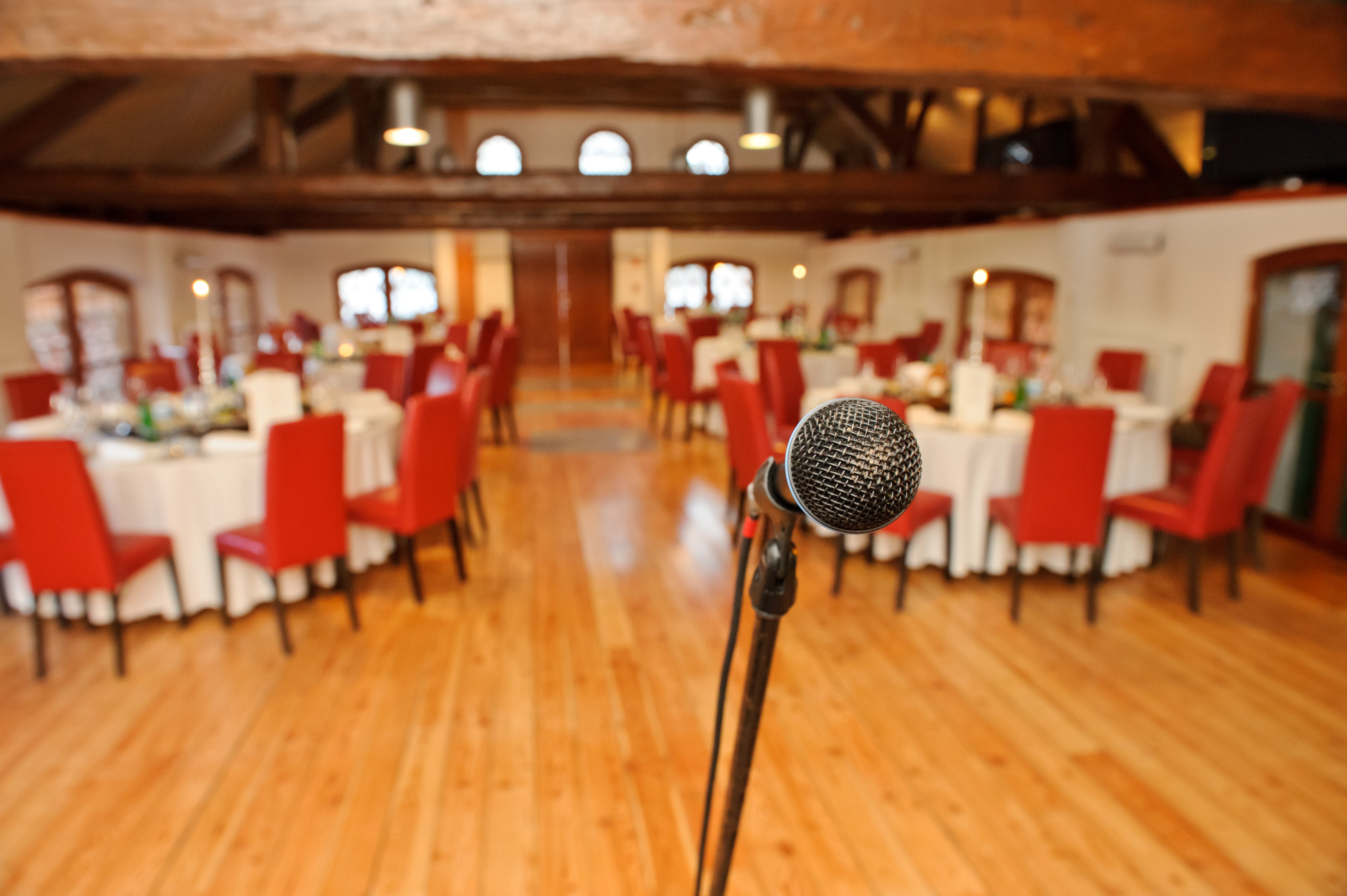The Independent's journalism is supported by our readers. When you purchase through links on our site, we may earn commission.
‘Cut the cliches’: How to write a great wedding speech
Wedding speeches are important, perhaps never more so than to the smaller ceremonies of the past year. Dina Gachman speaks to the pros about how to write the best speech possible

Massive parties with 10-piece bands and champagne fountains have given way to back-garden micro-weddings and Zoom celebrations during the pandemic. But one tradition has stayed strong and even thrived: the wedding speech.
Love them or hate them, “a speech gives people something to talk about and it’s amazing for bonding. It can really kick-start a party,” says Heidi Ellert-McDermott, the founder of Speechy, a British firm that creates bespoke speeches for weddings around the world.
Public speaking, whether it’s in front of 10 people or 100, can be intimidating and if you’ve sat through a lengthy, cliché-riddled wedding speech, you’ll know it’s not so easy to pull off a memorable toast.
“We’re all so acutely aware that no one has any idea what tomorrow will bring,” said Marisa Polansky, a founder with Kristine Keller of speech writing service Speech Tank in New York. “The fact that two people want to tackle that tomorrow together feels especially noteworthy. As such, there’s more pressure on speeches to bring a weightiness or gravitas to the event, I think. But it’s an opportunity, too.”
If you’ve been charged with saying a few words about the couple, there are a few things to remember that will help you ease your anxiety and inspire you to speak from the heart.
Ask yourself: why me?
If you’re staring at a blank page, take a step back and think about your relationship to the couple. “Start by asking yourself why you’re giving the speech,” said Tess Barker, 38, a comedian who has a, “deep résumé as a bridesmaid”. Thinking about your relationship to the couple can help you focus on memories you share and remind you that you’re not addressing the nation – you’re simply speaking to someone you care about.
Don’t do it alone
There’s a tendency to think of the speech-writing process as something solitary but Ellert-McDermott suggests making it a group effort. “Don’t confine it to this secret thing that has to be done in a dark room the night before when you’re panicking,” she says and suggests inviting the couple or other friends to brainstorm with you. Gather stories or find out traits or quirks about the couple that other friends or family love.
Ditch the thank-yous
Don’t start your speech by thanking the guests, the DJ, the florist, the parents and the band. Ellert-McDermott says: “Anyone who has listened to an Oscars acceptance speech knows that thank-yous are boring”. You can thank people individually and instead centre your speech on stories, humour and emotion. A quick, “Thanks for coming”, won’t ruin a speech but it shouldn’t be the focus.
Find a theme
Instead of talking about everything there is to know about the couple, narrow it down by identifying a theme. “It will help you stay focused and not be too long-winded, and build an outline,” said Carla Eustache, 38, the owner of US firm Style Perfect Events. She has noticed an increase in speeches about resilience and perseverance since the pandemic but your theme doesn’t have to be lofty. It can centre on one of the bride’s [quirky] obsessions, or the groom’s horrible singing voice. “If you can spot a theme in all the randomness, then that’s how it all comes together,” Ellert-McDermott says.
Cut the clichés
It’s easy to panic and do a search for a wedding speech template but cut-and-paste jobs rarely make memorable speeches. If you find yourself writing a string of clichés, throw away your speech and get down to basics, says Jason Mitchell Kahn, a New York wedding planner and the author of Getting Groomed: The Ultimate Wedding Planner For Gay Grooms. He says: “When a client comes to me, we focus on three points to hit: how you met, what you loved about them before they met each other and how you’ve seen their lives enriched.”
Don’t say things like, “they’re perfect for each other”, because, as Ellert-McDermott says, “nobody’s perfect”. Also, try to avoid quotes. Keller, of Speech Tank, says: “We’ve never heard a good speech that started, ‘As Jane Austen once said’.”
Know your audience
The pandemic has caused many weddings to become smaller and more intimate, which means speeches can get more personal and casual. The key is to read the room, whether it’s virtual or in person. “Don’t talk about a wild night on drugs,” Barker says. “Remember the grandparents.” She also suggests addressing both of the newlyweds. “When someone just gushes over one of the parties, it can get awkward.” Another key to avoiding awkwardness is not leaving people out. “Inside jokes always fall flat,” Eustache adds.
Keep it short and speak up
Longer doesn’t equal better. Most speech-writing experts suggest three to five minutes, tops. “No one ever gets upset if a speech is too short,” Keller says. Most experts also prefer holding a piece of paper to scrolling through a phone or device, since that can affect the flow of your speech. Leave the phone at the table, practise, memorise as much as you can and don’t forget to breathe. With the popularity of outdoor weddings post-pandemic, Kahn offers another important tip: “Always have a microphone,” he says. “There’s nothing more frustrating than a good speech that people can’t hear.”
This article originally appeared in The New York Times
Subscribe to Independent Premium to bookmark this article
Want to bookmark your favourite articles and stories to read or reference later? Start your Independent Premium subscription today.

Join our commenting forum
Join thought-provoking conversations, follow other Independent readers and see their replies